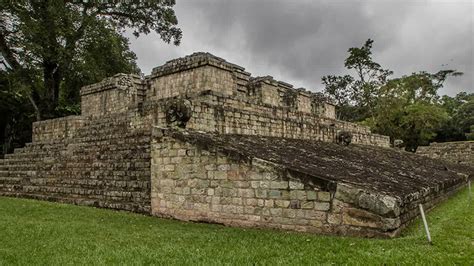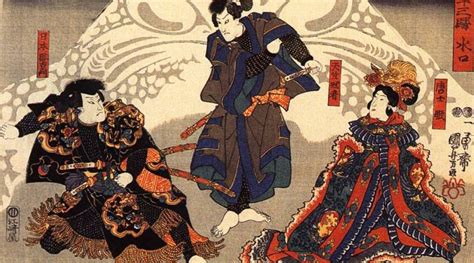Discover the rich history of Eswatini from pre-colonial times to the modern era, including cultural heritage and traditions. Learn about colonial rule and resistance.
Pre-colonial Eswatini
Contents
The history of Eswatini before the arrival of European explorers and settlers is a tale of rich cultural heritage and ancient traditions.
The land now known as Eswatini was originally inhabited by various Bantu-speaking tribes, including the Dlamini clan, which eventually formed the basis of the modern Eswatini monarchy.
These pre-colonial communities were predominantly agrarian, relying on farming and animal husbandry for their livelihoods. They lived in close-knit villages and had well-established social structures and political systems.
Religion and spirituality played a central role in the lives of these early inhabitants, with a strong emphasis on ancestral worship and traditional healing practices.
The pre-colonial era in Eswatini was characterized by a deep connection to the land and a profound respect for nature, which are values that continue to hold significance in modern Eswatini society.
Arrival of Europeans
The arrival of Europeans in Eswatini marked a significant turning point in the country’s history. It was in the mid-19th century that the first European explorers and traders arrived in the region, seeking new trade routes and economic opportunities. This initial contact eventually led to the establishment of colonial powers in Eswatini, as European nations vied for control of territories in Africa.
As the influence of Europeans grew, so did the impact on traditional Eswatini society. The introduction of new technologies, ideas, and religions brought about rapid changes in the way of life for the indigenous population. Additionally, the influx of European settlers led to tensions and conflicts over land ownership and resources, further altering the social and political landscape of the region.
Furthermore, the arrival of Europeans also brought with it the scourge of slavery and exploitation. The demand for cheap labor led to the widespread enslavement of the local population, as well as the establishment of coercive labor systems by the colonial powers. This exploitation of human resources had long-lasting repercussions on the socio-economic development of Eswatini.
In addition to the socio-economic impact, the arrival of Europeans also had profound effects on the cultural identity of the Eswatini people. The imposition of European languages, educational systems, and legal frameworks eroded traditional practices and beliefs, leading to a gradual loss of cultural heritage and traditions.
Colonial rule and resistance
During the late 19th century, Eswatini, then known as Swaziland, fell under the control of the British Empire. The colonial rule brought drastic changes to the traditional Swazi way of life, as the British sought to impose their own laws and customs on the indigenous population. This period marked a significant shift in power dynamics, as the Swazi people were forced to adapt to a new system of governance.
Despite the challenges posed by colonial rule, the Swazi people demonstrated remarkable resilience and resistance against British efforts to undermine their cultural heritage and traditions. Through various forms of protest and activism, including the formation of nationalist movements and the mobilization of indigenous leaders, the Swazi population fought to preserve their autonomy and traditional way of life. Their resistance to colonial rule was a testament to their unwavering commitment to preserving their cultural identity.
One of the most notable acts of resistance during this period was the Bhunu uprising of 1883, in which the Swazi people rebelled against the British authorities and their attempts to impose heavy taxation and forced labor. This revolt, led by the renowned Swazi warrior Mbilini, served as a powerful symbol of the Swazi people’s determination to challenge colonial oppression and defend their rights.
Despite facing significant challenges and obstacles, the Swazi people’s resistance to colonial rule ultimately contributed to the eventual emergence of a national consciousness and a unified effort to reclaim their independence. Their collective efforts laid the groundwork for the eventual establishment of Eswatini as a sovereign nation, free from the shackles of colonial domination.
Independence and modern era
After over six decades of British rule, Swaziland gained its independence on September 6, 1968, becoming a sovereign nation known as Eswatini. This marked a significant turning point in the country’s history, as it embarked on a new journey of self-governance and autonomy.
The newly independent Eswatini faced numerous challenges as it sought to establish itself on the international stage and build a modern nation-state. The government focused on developing key sectors such as education, healthcare, and infrastructure to improve the quality of life for its citizens. In the decades following independence, Eswatini underwent significant social, economic, and political transformations.
During the modern era, Eswatini has made strides in advancing its economy through diversification and attracting foreign investment. The country has also focused on promoting democratic governance and human rights, striving to create a more inclusive and equitable society for all its people. With a growing emphasis on sustainable development and environmental conservation, Eswatini is positioning itself for a prosperous future.
Eswatini has also strengthened its diplomatic relations with other nations and taken an active role in regional and international organizations. The country’s commitment to peace, stability, and cooperation has contributed to its growing influence and recognition on the global stage. As Eswatini continues to navigate the complexities of the modern era, it remains dedicated to preserving its rich cultural heritage and traditions while embracing the opportunities of the 21st century.
Cultural heritage and traditions
Eswatini, formerly known as Swaziland, is a country full of rich cultural heritage and traditions. The Swazi people take great pride in their unique customs, which have been passed down through generations. One of the most well-known traditions is the annual Reed Dance, where tens of thousands of young women gather to present reeds to the Queen Mother. This event celebrates the cultural identity and purity of the Swazi girls, and is a powerful display of unity and pride.
Another important aspect of Swazi culture is the traditional music and dance. The Swazi people are known for their vibrant dance performances, accompanied by the rhythmic sounds of drums and other traditional instruments. These dance forms not only serve as a form of entertainment, but also play a significant role in preserving Swazi history and culture.
The Swazi people also have a strong connection to their spiritual beliefs and practices. Traditional healers, known as Sangomas, are highly respected members of the community and are entrusted with the task of healing both physical and spiritual ailments. These healers play a vital role in maintaining the spiritual well-being of the Swazi people and are an integral part of the cultural fabric of the nation.
In addition to these traditional customs, Eswatini is also home to a number of crafts and arts that have been practiced for centuries. From intricate basket weaving to colorful beadwork, the artistic expressions of the Swazi people are a testament to their creative abilities and their dedication to preserving their cultural heritage.













